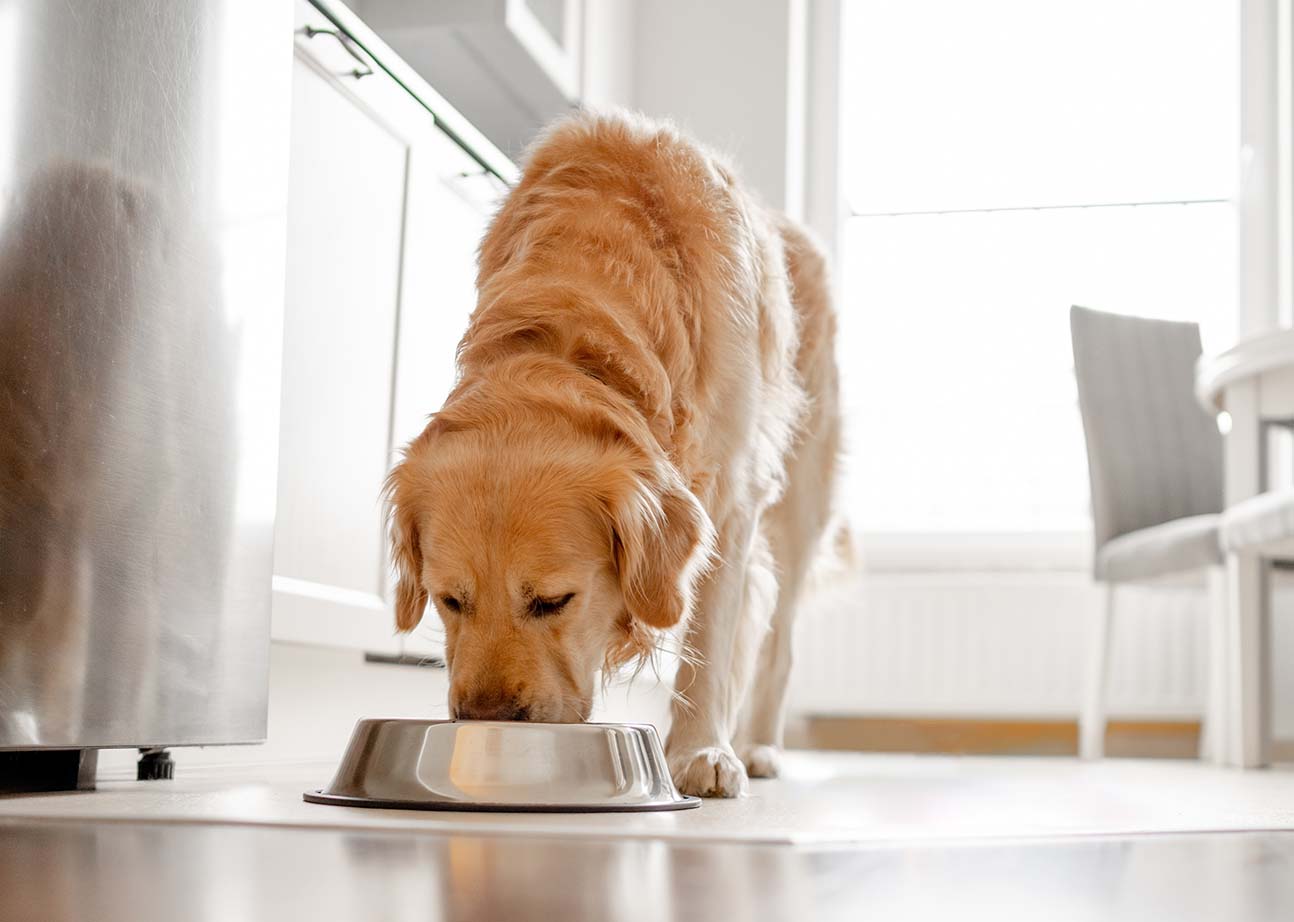Reviewed by Dr. Sarah Yosry
Updated on 20/05/2025
Reading time 4 min.
Overview
Severity: Low
Life stage: All
Quinoa has become known as a nutrient-rich superfood among health-oriented humans, but is it healthy and safe for dogs? Owners of pets often look for wholesome, natural substitutes for dry kibble fillers, and quinoa appears a likely choice. Nevertheless, you need to introduce any novelty food into your canine’s diet with a great deal of thought and professional recommendation.
In this article, we will discuss the advantages and disadvantages of adding quinoa to a dog’s diet. We will also take you through preparation and serving instructions safely, alongside FAQS. If you’re looking for a “vet clinic nearby” or simply wish to enrich your dog’s nutrition, this article is designed for Dubai dog parents and more.
What is Quinoa?
Quinoa (pronounced KEEN-wah) is a seed of the South American plant Chenopodium. Though commonly referred to as a grain, it’s a pseudocereal. Quinoa is gluten-free, high in plant protein, and a source of all nine essential amino acids, making it a “complete protein.” Humans value quinoa for its nutritional density and usability, and pet clinics now deem it safe for dogs, in moderation.
As you would expect, some veterinary clinics add quinoa to homemade or gourmet dog food diets. However, you must introduce food gradually and observe your dog’s response, particularly if your dog has a sensitive stomach or food sensitivities.
Nutritional Value of Quinoa for Dogs
Rich in fiber, minerals, and antioxidants
One of the reasons that quinoa is attractive to veterinarians and pet owners is because of its nutrient-dense profile. A cup of cooked quinoa provides
• 8 grams of protein
• 5 grams of fiber
• Vitamins B1, B2, B6
• Iron, magnesium, manganese, phosphorus
• Antioxidants that sustain cell well-being
Quinoa’s inherent fiber helps with digestion and overall gut health. The vitamins support a dog’s metabolism and immune function. In rotation with other natural foods, quinoa can aid a complete canine food regimen.
Nevertheless, for you to give your dog the right benefits, you could consider seeking advice from a reliable vet clinic in Dubai or schedule a consultation at Modern Vet Hospital so that you can create a tailored meal plan.
Can Dogs Safely Eat Quinoa?
Yes, dogs can eat quinoa—but only if it is cooked and served plain. Never give raw quinoa or quinoa with seasonings such as garlic, onion, or salt, since these would be toxic or harmful to dogs.
Quinoa has a natural compound known as saponin, a mild stomach irritant for dogs and people. Most of it is removed by thoroughly washing quinoa before cooking.
Moderation is essential. Too rapid a consumption of too much quinoa can cause gas, a feeling of bloating, or diarrhea. Introduce it gradually at all times and keep an eye out for sensitivity signs. In case you notice vomiting, itching, or any signs of stomach discomfort, discontinue quinoa consumption and consult your vet near me or a veterinary hospital in Dubai.
Benefits of Quinoa for Dogs
Most veterinarians in Dubai consider quinoa a nutritious supplement for dogs, particularly dogs with allergies to grains. Some of the main advantages are:
• Hypoallergenic option: Quinoa is gluten-free and seldom causes allergic reactions.
• High protein content: Facilitates muscle maintenance and repair.
• Low Glycemic Index: Maintains even blood sugar levels.
• Rich in antioxidants: Combats cellular inflammation and promotes overall health over time.
Dogs with wheat, corn, or soy sensitivities will do well with quinoa serving as a carbohydrate. Nevertheless, even clinically normal dogs will appreciate an occasional quinoa treat, if only because so many pet dogs experience unvaried, traditional dog foods.
If you are uncertain if your dog qualifies, schedule an appointment with a vet clinic close by or seek advice from the experts at Modern Vet Hospital Dubai.
Possible Risks and Precautions
Although it has benefits, quinoa is not for every dog. A few dogs simply cannot handle it because of:
• Saponins: Saponins are irritating to the gut lining, particularly for sensitive dogs.
• Portion size: Overfeeding quinoa can cause an imbalance in a dog’s normal diet.
• Allergic reactions are rare, yet occur; itching, rash, or gastrointestinal discomfort are among the symptoms.
Always wash quinoa before cooking so you can remove any residual saponins. Don’t serve it with any foods that are toxic for dogs, such as onion powder, butter, or bouillon cubes.
Keep an eye on your pet immediately after their initial quinoa meal. Any indication of discomfort would warrant a visit to a pet hospital or veterinary clinic within your vicinity.
How to Prepare Quinoa for Your Dog
• Rinse well: Wash quinoa with cold water for 1–2 minutes to release saponins.
• Boil until tender: Boil with water only—no salt, no oils.
• Chill before serving: Serve warm or at room temperature to avert burns.
• Mix a little at a time: Use 1 tablespoon for smaller dogs or 2–3 tablespoons for bigger breeds.
You can mix quinoa into homemade food or sprinkle it over commercially available dog food. For fussy eaters, you can mix it with boiled chicken or vegetable items such as pumpkin or carrots, using no seasonings. If you are unsure about preparing food for your dog at home, consult a veterinary clinic in Dubai for meal support, or consult Modern Vet Hospital’s nutrition experts.
When to Avoid Feeding Quinoa
Avoid giving quinoa to dogs who
• Suffering from pancreatitis (quinoa is perhaps too fibrous or rich)
• Suffering from chronic gastrointestinal issues
• Allergic to seeds or legumes
• Easily experience bloating
It’s also not recommended to feed quinoa to pups younger than 12 weeks unless a vet recommends it. Their digestive systems are still maturing and could respond adversely to new grains or seeds.
In such a case, see a professional vet Dubai or look for a veterinary clinic nearby to assess your pet’s nutrition requirements.
Conclusion
Quinoa is a nutritious, protein-laden, and hypoallergenic supplement for your dog. If served properly—boiled, rinsed, and unseasoned—quinoa provides essential nutrition for maintaining energy, immune function, and digestion. Not all dogs, however, digest quinoa equally, and it must never become a primary source of nutrition.
For Dubai pet owners who are seeking to include healthier food items in a dog’s diet, consultation with a qualified vet is strongly advised.
Share this, choose your platform!
Writen by
Dr.Sarah Yosry
DVM
A product of a rich Australian/Egyptian heritage, Dr. Sarah Yosry stands as a testament to the union of diverse cultures and a shared love for animals.



